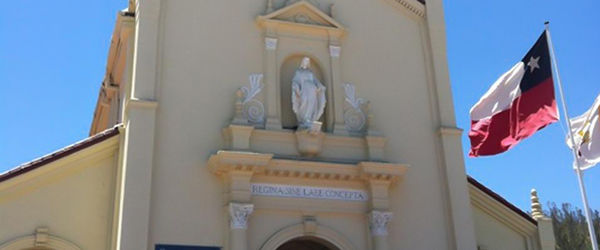FAIRBANKS, Alaska — How to pass the baton to struggling native communities incorporating their traditions and values is an ongoing conversation among the few remaining members of the Society of Jesus in the Diocese of Fairbanks, which they founded and have been building during the past 125 years.In their heyday, Jesuit priests would either live among native people or visit them frequently. Today four priests work with Yup’ik Eskimo villages along the Yukon River and they are trying to find innovative ways to promote vocations and develop leadership."How do we provide them with the resources and enable them to do it their way?" said Jesuit Father Tom Provinsal, noting that the native model of learning is based on observation rather than the "Europeanized" way of receiving instructions through an expert."We don't understand that and that I think is part of the problem," he said.In a conversation with The Tidings, Father Provinsal and fellow Jesuit Fathers Ted Kestler, Chuck Peterson and Gregg Wood concurred that today the priority of the Catholic Church in the "bush villages," or remote native communities only accessible by plane or boat, is the promotion of vocations and catechetical formation and training of lay people.The once-burgeoning Eskimo Deacon Program, co-founded by Father Peterson in the early 1970s, and the Native Ministry Training Program are still available and strong programs, but limited by budget constraints and shortage of priests."Today it costs about $20,000 to train a group of about 26 deacons," said Father Peterson, pastor of Immaculate Conception Church in Bethel, the hub of the Yup’ik communities. The candidates from the different villages have to be flown to locations where they could receive the training.Plus, each day it is more difficult to work with an aging community in an economy totally dependent on the rhythm of nature. Younger generations are migrating and those who stay are lured by multimedia and social networking that create false ideas of easy access to wealth. "How do you combine what we call practical theology with theology?" questioned Father Kestler, who described himself as a "theologyholic."Members of the state's indigenous communities learn by doing, he explained, whereas the church, influenced by Western culture, puts theory before practice."In the Catholic Church, there are some things you can't teach by doing, but other things you can. We need to find a balance," he said.Relationship building is key in the efforts of finding that equilibrium, the priests concurred, but that is equally difficult when the ministers are absent from the communities they serve for long periods of time.The silver lining, though, is that in the absence of priests, local leaders are becoming more independent in making decisions to address social issues such as alcoholism and drug abuse affecting their younger generations."What this says to me is that our best role is to be somewhat on the sidelines encouraging them to say, 'yes, you can,'" said Father Wood.Today, he said, native deacons are active participants in the church's planning, together with the Jesuits and diocesan priests.The priests are convinced that Eskimos have unique insight and methods of learning that could be very useful if they're given more opportunities to actively participate in the church in leadership roles, including priests and bishops.Thus, their efforts are being focused on the training and formation of those leaders.The Society of Jesus is in the process of reorganizing their ways of doing things, "listening to the people more than we have done before," and trying to find ways of developing self-supportive churches."(In Alaska) we are on a frontier," said Father Wood. "And people are going through tremendous changes and transitions in a very short span and we are in that frontier with them.”Maria Boyscout, wife of Deacon Peter Boyscout, who works closely with the Jesuit priests, told The Tidings that Catholic members of native communities in the Fairbanks Diocese "are hungry for more knowledge of Christ."The Yup’ik leaders said the shortage of priests serving the "bush" villages is taking a toll on their communities, where many people do not know where to turn when spiritual direction is needed. One or two months could go by without the visit of any priest.To fill the void, "sometimes you have to gather something spiritual by yourself," said Maria Boyscout, who co-founded a Bible group for women.The mother of 10 said the Yup’iks are traditionally spiritual people who hunger for knowledge of the Bible and Catholic teachings.In an effort to keep growing in faith despite the lack of priests, they have developed interfaith groups with the idea of drawing more attention to the needs of the younger generations."And we continue encouraging vocations in our youth," said Deacon Boyscout.{gallery width=100 height=100}gallery/2012/0831/alaskajesuits/{/gallery}

